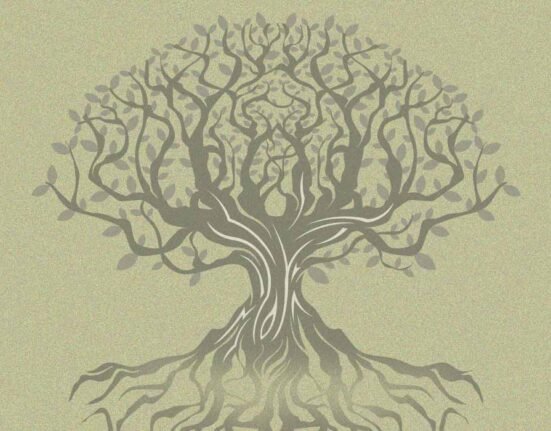“Humans are social animals…”– a quote by the ancient Greek philosopher Aristotle remains equally relevant to this day. Indeed we are social creatures. It’s hard to imagine a life without people, a life of solitude and silence. Today the way we live a high-functioning life, taking time out for oneself to experience a hint of solitude is rare. Most of us are in a constant tug-of-war between our urge to stay connected to society and the need to stay connected to ourselves. As most of us want to have both, we juggle between the two, hoping to achieve a balance someday. Except those who wish to breathe life in between their deadlines and rocking parties. But even if we choose to live in solitude, there are times when we feel lonely. But does being alone always mean loneliness? Then why do some people love being alone?
Read More: The Psychology of Alienation
Let’s understand why…We all have a social life and it’s quite natural for us to be a part of our social group. Being a part of a social group gives us a sense of belongingness but it also induces stress. It might make you feel anxious and distressed at times. You might worry about others’ opinions and judgments about the way you look, behave or think. Social events and parties can be quite tiring for you and these are the times when we consider staying alone rather than catching up with a friend or family member. Although we might have heard a lot about why staying alone can cause distress and isolation. It’s not all bad and there are some great benefits of staying alone. But first, let’s understand what is the difference between being alone and loneliness.
Loneliness
Loneliness is characterized by feeling empty, isolated and unwanted. Loneliness can feel like staying in a house, far from the city on a cold winter night with no one near you. It’s a state of mind where an individual craves the presence of others and the inability to be with others makes them feel sad or distressed. National Sample Survey Office (NSSO) 2004 conducted a study and the results were that about 49.1 lakh people (12.3 lakh men and 36.8 lakh women) were living alone and suffered from loneliness. The feeling of being disconnected from others and not being able to get in touch with them is what disturbs me the most.
Read More: Tips to deal with Loneliness
Loneliness can be further classified into 2 different types, chronic and transient. Chronic loneliness, as the name suggests, is a persistent feeling of being isolated and unwanted for a long period. Although the intensity might vary, it stays with a person over some time irrespective of the situation the person is experiencing. On the other hand, transient loneliness is often a result of a situation or other factors and it is generally experienced for a competitively shorter period. Research suggests that feeling socially isolated has a larger risk of Dementia and Alzheimer’s disease (Wilson et al., 2007).
Read More: Impact of Loneliness on Mental & Physical Health
It can also be associated with a decline in cognitive functioning, and the degree of isolation can be directly associated with a greater risk of Alzheimer’s disease. Depression and loneliness are often seen being paired with each other. It’s more common if a person is going through a loss of a loved one. Generalized anxiety disorder and other social phobias are also closely linked to loneliness.
Solitude–being alone
While loneliness can be hard and distressing, it is often seen that some people seem to enjoy being alone. Solitude is a state of peace. While solitude is also described as being alone, it is not a state of distress but happiness. Finding the best version of yourself through the lens of your own. Solitude, unlike loneliness, is considered beneficial and positive for a person. A person seeks solitude to find the true purpose of his/her life, to find themselves as an eternal being and to connect oneself to their soul. When we become a part of a social group it becomes quite challenging for us to express ourselves.
The need to be socially desirable makes us shape our thoughts in a way that is more validated by the group than ourselves. But when we are alone all by ourselves we rarely are uncomfortable to show our true self. That’s why being alone leads us to the journey of self-explanation. Our creative self takes over and we experience the most unfiltered version of ourselves. Researchers show significant results that often living alone increases our social energy.
However, it is important to note that several people among us are more likely to feel lonely than enjoy solitude due to personality factors. It’s more or less a preference for all of us if we want to stay connected to society more or to ourselves. Even if we choose solitude, it’s our choice how long we want it to last. Extroverted individuals are more energetic and happy around others, while introverted individuals prefer being by themselves.
Being Alone vs Being Lonely
| Being Alone | Being Lonely |
| A positive state of mind in general. | A negative state of mind. |
| Being alone does not necessarily make people feel sad or distressed. | Being Lonely makes an individual feel unwanted, isolated, and distressed. |
| Help people find the true purpose of life and make them indulge in self-care. | Makes people feel worried and distressed. |
| Increases creativity and imagination. In short, cognitive functioning increases. | Cognitive functioning decreases leading to further risk of developing Alzheimer’s and dementia. |
| Once an individual starts spending time with themselves, they enjoy and feel peaceful in it. | Makes people crave social connections |
A person can feel lonely even if he or she is a part of a group and being alone does not necessarily make people feel lonely. Solitude fulfills you as a person but loneliness sadly empties you.
Overcome Challenges of Being Alone
You might enjoy being alone but not for a long period, or you might feel bored of being alone and want to be around others, it’s your call. But here are a few tips to help you overcome the feeling of loneliness and enjoy your alone time:
- Talk to a friend
- Journal everyday
- Consider therapy
- Try to go out for a walk
- Try learning a new skill
- Try indulging in self-care
- Meditate and practice mindfulness
- Focus on your current relationship with others
Being alone can bring both peace and emptiness; it just depends on how you perceive it. Solitude helps one increase positivity and mindfulness in an individual’s life while loneliness can bring not-so-pleasing conditions in your life. Ask for help, and talk to others if you feel lonely and that bothers you daily. Therapy can solve your problems and help you enjoy your alone time of self-explanation.
References +
- https://www-psychologytoday-com.cdn.ampproject.org/v/s/www.psychologytoday.com/us/basics/loneliness?amp=&_gsa=1&_js_v=a9&usqp=mq331AQIUAKwASCAAgM%3D#amp_tf=From%20%251%24s&aoh=17057459480232&referrer=https%3A%2F%2Fwww.google.com&share=https%3A%2F%2Fwww.psychologytoday.com%2Fus%2Fbasics%2Floneliness
- https://www.verywellmind.com/loneliness-causes-effects-and-treatments-2795749
- https://positivepsychology.com/loneliness-psychology/
- https://www.ncbi.nlm.nih.gov/pmc/articles/PMC3874845/
- https://www-psychologytoday-com.cdn.ampproject.org/v/s/www.psychologytoday.com/us/blog/the-philosophers-diaries/202107/how-to-be-alone-with-yourself?amp=&_gsa=1&_js_v=a9&usqp=mq331AQIUAKwASCAAgM%3D#amp_tf=From%20%251%24s&aoh=17057459480232&referrer=https%3A%2F%2Fwww.google.com&share=https%3A%2F%2Fwww.psychologytoday.com%2Fus%2Fblog%2Fthe-philosophers-diaries%2F202107%2Fhow-to-be-alone-with-yourself
- https://link.springer.com/article/10.1007/s42413-020-00072-9
- https://www.verywellmind.com/how-important-is-alone-time-for-mental-health-5184607













Leave feedback about this